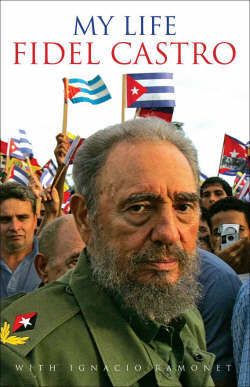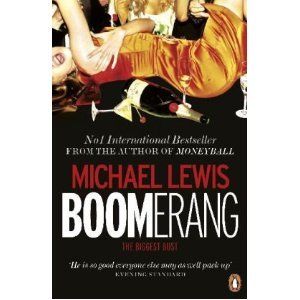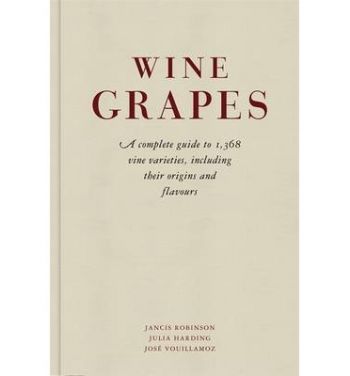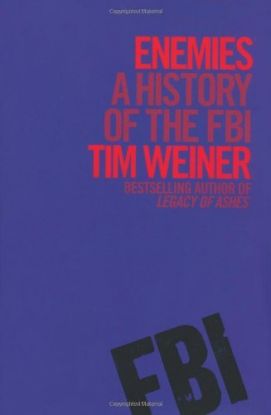Allen Lane
vydavateľstvo
My Life
For years people have tried to persuade the leader of the Cuban Revolution to tell his own life story. Here, finally, Ignacio Ramonet, well-known activist and editor of "Le Monde Diplomatique", has succeeded. For the first time, in a series of probin
g interviews, Fidel Castro describes his life, from the 1950s all the way up to the present day. He discusses his parents, his earliest influences, the beginnings of the revolution, his relationship with Che Guevara, the Bay of Pigs, the Carter years
, Cuban migration to the US. And along the way, Ramonet challenges Castro to discuss his views on a number of controversial questions, from human rights and freedom of the press to the repression of homosexuality and the survival of the death penalty
, and he gives his opinion of other leaders, alive and dead, including George Bush and Tony Blair.
Vypredané
28,06 €
29,54 €
In Defence of Dogs
John Bradshaw, one of the world's leading dog experts, brings us a compelling insight into what dogs would ask us for, if only they knew how. The dog has been mankind's faithful companion for tens of thousands of years, yet today finds itself in cris
is throughout the western world. Until just over a hundred years ago, most dogs worked for their living, and each of the many breeds had become well suited, over countless generations, to the task for which they were bred. Now, in their purely domest
ic roles we fail to understand their needs. And it is time that someone stood up for dogdom: not the caricature of the wolf in a dog suit, ready to dominate its unsuspecting owner at the first sign of weakness, not the trophy animal that collects ros
ettes and kudos for its breeder, but the real dog, the pet that just wants to be one of the family and enjoy life. Biologists now know far more about what really makes dogs tick than they did twenty years ago, but this new understanding has been slow
to percolate through to owners, and has not yet made enough of a difference to the lives of the dogs themselves. This book is here to set the record straight.
Vypredané
20,89 €
21,99 €
I'm Feeling Lucky
Comparing Google to an ordinary business is like comparing a rocket to a wheelbarrow. No academic analysis or bystander's account can capture it. Now Douglas Edwards, Employee Number 59, takes readers inside the Googleplex for the closest look you ca
n get without an ID card, giving readers a chance to fully experience the potent mix of camaraderie and competition that makes up the company that changed the world. Edwards, Google's first director of marketing and brand management, describes it as
it happened. From the first, pioneering steps of Larry Page and Sergey Brin, the company's young, idiosyncratic partners to the evolution of the company's famously nonhierarchical structure (where every employee finds a problem to tackle or a feature
to create and works independently), through the physical endurance feats of the company's engineers (both on and off the roller-hockey field) to its ethos to always hire someone smarter than yourself, I'm Feeling Lucky captures for the first time th
e unique, self-invented, culture of the world's most transformative corporation. Welcome to the "Google Experience".
The Quest
The Quest continues the riveting story Daniel Yergin began twenty years ago with his No.1 International Bestseller The Prize, revealing the on-going quest to meet the world's energy needs - and the power and riches that come with it.
A master sto
ry teller as well as our most expert analyst, Yergin proves that energy is truly the engine of global political and economic change. From the jammed streets of Beijing, the shores of the Caspian Sea, and the conflicts in the Middle East, to Capitol H
ill and Silicon Valley, Yergin tells the inside stories of the oil market, the rise of the 'petrostate', the race to control the resources of the former Soviet empire, and the massive corporate mergers that have transformed the oil landscape. He show
s how the drama of oil - the struggle for access to it, the battle for control, the insecurity of supply, its impact on the global economy, and the geopolitics that dominate it - will continue to shape our world. And he takes on the toughest question
s: will we run out; are China and the United States destined for conflict; what of climate change? Yergin also reveals the surprising and turbulent histories of nuclear, coal, and natural gas, and investigates the 'rebirth of renewables'- biofuels, w
ind, and solar energy - showing how understanding this greening landscape and its future role are crucial to the needs of a growing world economy.
The Quest presents an extraordinary range of characters and dramatic stories to illustrate the prin
ciples that will shape our energy security system for the decades to come. It is essential reading.
Vypredané
24,23 €
25,50 €
Civilization - The West and the Rest
If in the year 1411 you had been able to circumnavigate the globe, you would have been most impressed by the dazzling civilizations of the Orient. The Forbidden City was under construction in Ming Beijing; in the Near East, the Ottomans were closing in on Constantinople. By contrast, England would have struck you as a miserable backwater ravaged by plague, bad sanitation and incessant war. The other quarrelsome kingdoms of Western Europe – Aragon, Castile, France, Portugal and Scotland – would have seemed little better. As for fifteenth-century North America, it was an anarchic wilderness compared with the realms of the Aztecs and Incas. The idea that the West would come to dominate the Rest for most of the next half millennium would have struck you as wildly fanciful. And yet it happened. What was it about the civilization of Western Europe that allowed it to trump the outwardly superior empires of the Orient? The answer, Niall Ferguson argues, was that th e West developed six “killer applications” that the Rest lacked: competition, science, democracy, medicine, consumerism and the work ethic. The key question today is whether or not the West has lost its monopoly on these six things. If so, Ferguson warns, we may be living through the end of Western ascendancy. Civilization takes readers on their own extraordinary journey around the world – from the Grand Canal at Nanjing to the Topkapi Palace in Istanbul; from Machu Picchu in the Andes to Shark Island, Namibia; from the proud towers of Prague to the secret churches of Wenzhou. It is the story of sailboats, missiles, land deeds, vaccines, blue jeans and Chinese Bibles. It is the defining narrative of modern world history.
Vypredané
16,14 €
16,99 €
Origins of Sex
Nowadays we believe that consenting adults have the freedom to do what they like with their own bodies. We publicize and celebrate sex; we discuss it endlessly; and, we are obsessed with the sex lives of celebrities. We think it wrong that in other cultures people suffer for their sexual orientation, that women are treated as second-class citizens, or that adulterers are put to death. Yet until quite recently our own society was like this too. For most of western history, all sex outside marriage was illegal, and the church, the state, and ordinary people all devoted huge efforts to suppressing and punishing it. This was a central feature of Christian civilization, one that had steadily grown in importance since the early middle ages. In this brilliant, ground-breaking book, Faramerz Dabhoiwala describes in dramatic detail how, between 1600 and 1800, this entire world view was shattered by revolutionary new ideas - that sex is a private matter; that morality cannot be imposed by force; and, that men are more lustful than women. Henceforth, the private lives of both sexes were to be endlessly broadcast and debated, in a rapidly expanding universe of public media: newspapers, pamphlets, journals, novels, poems, and prints. "The Origins of Sex" shows that the creation of this modern culture of sex was a central part of the Enlightenment, intertwined with the era's major social, political and intellectual trends. It helped create a new model of Western civilization, whose principles of privacy, equality, and freedom of the individual remain distinctive to this day.
Vypredané
25,65 €
27,00 €
The Obamas
When Barack Obama won the 2008 presidential election, he also won a long-running debate with his wife Michelle. Contrary to her fears, politics now seemed like a worthwhile, even noble pursuit. Together they planned a White House life that would be as normal and sane as possible. Then they moved in. In "The Obamas", Jodi Kantor takes us deep inside the White House as they grapple with their new roles, change the country, raise children, maintain friendships, and figure out what it means to be President and First Lady. Filled with riveting detail and insight into their partnership and personalities, and written with a keen eye for the ironies of public life and the realities of power, "The Obamas" is an intimate portrait that will surprise even those who thought they knew the President and First Lady.
Vypredané
16,14 €
16,99 €
Wired for culture
Since humans left Africa less than a hundred thousand years ago there has been a staggering explosion of cultures. What caused this blooming of diversity? Why are there so many mutually incomprehensible languages, even within small territories? Why do we rejoice in rituals, wrap ourselves in flags, or define ourselves in opposition to others? In "Wired for Culture" Mark Pagel, one of the world's leading experts on human development, shows how our facility for culture is the key to our success as a species. Humans are usually seen as differing from other animals because of our inherent traits of consciousness, language and intelligence. But Mark Pagel shows we've had it the wrong way round. Many of these things would not exist without our propensity for culture - our ability to co-operate in small tribal societies, enabling us to pass on knowledge, beliefs and practices so that we prospered while others declined. Mark Pagel's extraordinary history of the role of culture in natural selection shows how humans developed a mind that is hardwired for culture - so that it has outstripped our genes in determining who we are, how we think and speak, who we love and kill - and how it equips us for the challenges of life in the modern world. Weaving together evolutionary biology, anthropology, natural history, philosophy and Pagel's years of observing human behaviour around the globe, this extraordinary book sheds light on everything from art, morality and affection to jealousy, self-interest and prejudice. It will change how we view ourselves, not just as individuals, but within the wider story of our species.
Vypredané
25,64 €
26,99 €
Boomerang
In Boomerang Michael Lewis, the international bestselling author of The Big Short, Liars' Poker, The Blind Side and Moneyball, turns his trademark wit to the subject of how the financial meltdown hit us all in the face. Right now, Europe is in serious financial chaos. In Greece, infrastructure costs mean it would be cheaper to transport all Greek rail passengers by taxi, and hairdressing is classified as arduous for tax avoidance purposes. In Iceland, Range Rovers frequently explode as owners collect the insurance to pay for them. Ireland saw the entire country put up for sale - to itself, while the Germans expected the whole world to behave like them. But the whole world didn't.In this hilarious, fascinating, timely must-read, Michael Lewis reveals the true natures of the countries caught up in - and exacerbating - our boomerang economies.
Vypredané
10,44 €
10,99 €
Breakout Nations
The argument of "Breakout Nations" is that the astonishingly rapid growth over the last decade of the world's celebrated emerging markets is coming to an end. The era of easy money and easy growth is over. China, in particular, will soon slow, but its place will not necessarily be taken by Brazil, Russia or India, all of which Ruchir Sharma shows how weaknesses and difficulties often overlooked in the inflated expectations and emerging markets mania of the past decade. To identify the economic stars of the future, he says, we should abandon the habit of simply extrapolating from general global trends and look at emerging markets individually. The new 'breakout nations' will probably spring from the margins - even from the shadows. Sharma identifies which they are most likely to be, and why. Sharma, head of one of the world's leading emerging market funds, has spent two decades travelling the globe to find out what is happening on the ground in developing countries. With this first-hand knowledge, he takes his readers on a tour of two dozen of the world's most interesting economies, introducing the critical players and describing and analyzing the forces - many unique to each nation - which will make the successes and flops of the future. The book is full of surprises: why the current mania for oil echoes the dotcom mania of 2000; how an industrial revolution in Asia is redefining what manufacturing can do for a modern economy; how the coming shakeout in the big emerging markets could shift the spotlight back to the west, especially American technology and German manufacturing; why the next two trillion-dollar economies will be big Moslem democracies. It contains warnings about command economies (some work, but many fail too), shows that the EU is producing model economies as well as basket cases, and suggests what we can learn from the $24 price of cocktails in Rio. Even Vladimir Putin's dog makes an appearance.
Vypredané
18,91 €
19,90 €
Unfinished Empire
Examines the influence of the British Empire. This book has shaped the world in countless ways: repopulating continents, carving out modern nations, imposing its own language, technology and values.
Vypredané
28,49 €
29,99 €
Shakespeare's Resless World
From Neil MacGregor, the acclaimed creator of "A History of the World in 100 Objects" and the Director of the British Museum, comes a unique, enthralling exploration of the age of William Shakespeare to accompany a new BBC Radio 4 series. Shakespeare lived through a pivotal period in human history. With the discovery of the New World, the horizons of Old Europe were expanding dramatically - and long-cherished certainties were crumbling. Life was exhilaratingly uncertain. What were Londoners thinking when they went to see Shakespeare's plays? What was it like living in their world? Here Neil MacGregor looks at twenty objects from Shakespeare's life and times, and uncovers the fascinating stories behind them. The objects themselves range from the grand (such as the hoard of gold coins that make up the Salcombe treasure) to the very humble, like the battered trunk and worn garments of an unknown pedlar. But in each case, they allow MacGregor to explore issues as diverse as piracy and Islam, Catholicism and disguise. MacGregor weaves the histories of objects into the words of Shakespeare's plays themselves to suggest to us where his ideas about religion, national identity, the history of England and the world, human nature itself, may have come from. The result is a fresh and thrilling evocation of Shakespeare's world.
Vypredané
28,49 €
29,99 €
Big Screen
In this triumphant work David Thomson, one of film's greatest living experts and author of "The New Biographical Dictionary of Film", tells the enthralling story of the movies and how they have shaped us. Taking us around the globe, through time and across multiple media, Thomson tracks the ways in which we were initially enchanted by this mesmerizing imitation of life and let movies - the stories, the stars, the look - show us how to live. But at the same time he shows us how movies, offering a seductive escape from the everyday reality and its responsibilities, have made it possible for us to evade life altogether. The entranced audience has become a model for powerless citizens trying to pursue happiness by sitting quietly in a dark room. Does the big screen take us out into the world, or merely mesmerize us? That is Thomson's question in this great adventure of a book.
Vypredané
28,98 €
30,50 €
Wine Grapes
This is an indispensable book for every wine lover, from some of the world's greatest experts. Where do wine grapes come from and how are they related to each other? What is the historical background of each grape variety? Where are they grown? What sort of wines do they make and, most importantly, what do they taste like? Using the most cutting-edge DNA analysis and detailing almost 1,400 distinct grape varieties, as well as myriad correct (and highlighting almost as many incorrect) synonyms, this particularly beautiful book includes revelatory grape family trees, and a rich variety of illustrations from Viala and Vermorel's seminal ampelography with century-old illustrations. Combining Jancis Robinson's world view, nose for good writing and good wines with Julia Harding's expertise and attention to detail plus Dr Vouillamoz's unique level of scholarship, "Wine Grapes" offers essential and original information in greater depth and breadth than has ever been available before. A book for wine students, wine experts and wine lovers everywhere.
Vypredané
194,75 €
205,00 €
The Great Degeneration
The decline of the West is something that has long been prophesied. Symptoms of decline are all around us today, it seems: slowing growth, crushing debts, aging populations, anti-social behaviour. But what exactly is amiss with Western civilization? The answer, Niall Ferguson argues, is that our institutions - the intricate frameworks within which a society can flourish or fail - are degenerating. Representative government, the free market, the rule of law and civil society: these were once the four pillars of West European and North American societies. It was these institutions, rather than any geographical or climatic advantages, that set the West on the path to global dominance after around 1500. In our time, however, these institutions have deteriorated in disturbing ways. Our democracies have broken the contract between the generations by heaping IOUs on our children and grandchildren. Our markets are increasingly distorted by over-complex regulations that are in fact the disease of which they purport to be the cure. The rule of law has metamorphosed into the rule of lawyers. And civil society has degenerated into uncivil society, where we lazily expect all our problems to be solved by the state. "The Degeneration of the West" a powerful - and in places polemical - indictment of an era of negligence and complacency. While the Arab world struggles to adopt democracy, and while China struggles to move from economic liberalization to the rule of law, Europeans and Americans alike are frittering away the institutional inheritance of centuries. To arrest the degeneration of the West's once dominant civilization, Ferguson warns, will take heroic leadership and radical reform. This book is based on Niall Ferguson's 2012 BBC Reith Lectures, which were broadcast under the title "The Rule of Law and Its Enemies".
Vypredané
14,73 €
15,50 €
Enemies: A History of the FBI
Such creatures of passion, disloyalty, and anarchy must be crushed out. The hand of our power should close over them at once' President Woodrow Wilson, 1919
The United States is a country founded on the ideals of democracy and freedom, yet throughout the last century it has used secret and lawless methods to destroy its enemies. The Federal Bureau of Investigation is the most powerful of these forces.
Following his award-winning history of the C.I.A., Legacy of Ashes, Tim Weiner has now written the first full history of the F.B.I. as a secret intellligence service. Drawn entirely from firsthand materials in the F.B.I.'s own files, Enemies brilliantly brings to life the entire story, from the cracking of anarchist cells to the prosecution of the 'war on terror'. It is the story of America's war against spies, subversives and saboteurs - and the self-inflicted wounds American democracy suffered in battle.
Throughout the book lies the long shadow of J. Edgar Hoover, who ran the F.B.I. with an iron fist for forty-eight years. He was not a monster, but a brilliant confidence man who ruled by fear, force, and fraud. His power shaped America; his legacy haunts it.
Vypredané
28,49 €
29,99 €















